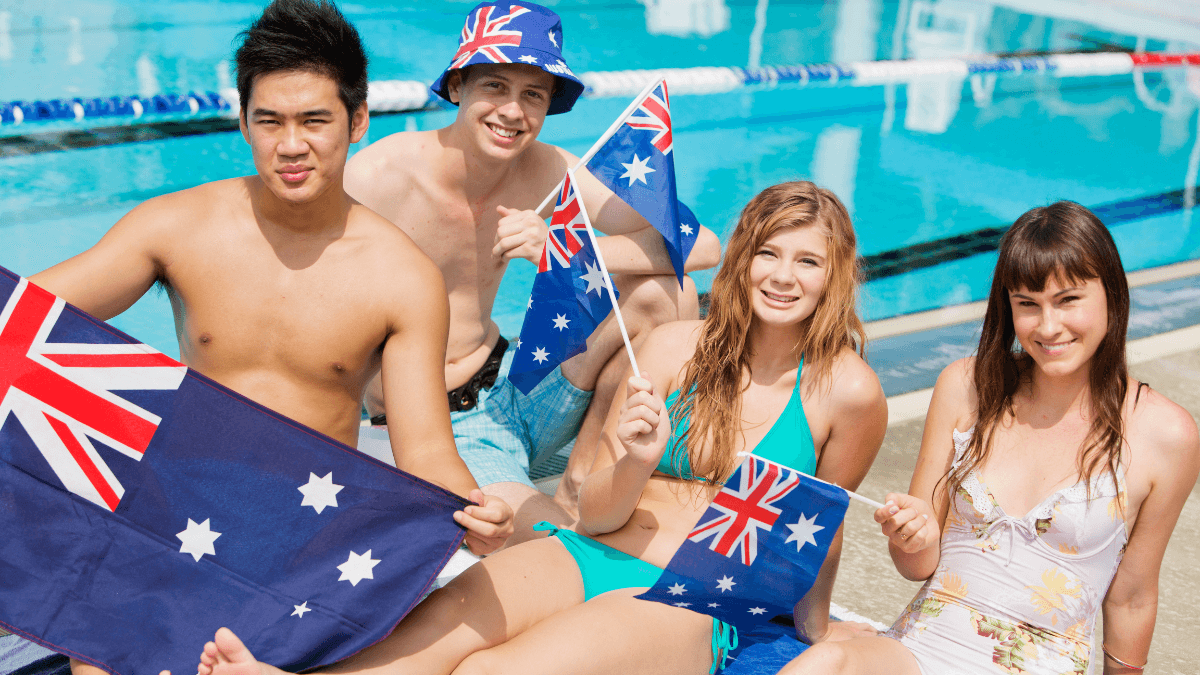Need To Know: Understanding Australian Social Customs

Australia is a society based on distinct social norms and unwritten cultural codes, not only sun-drenched beaches, vivid animals, and famous sites. Although Australians are sometimes recognized for their laid-back demeanor and keen sense of humor, there is more going on behind the scenes about the daily interactions of the nation. Whether you visit Australia or live here trying to negotiate the nuances of Australian social customs, this guide dissects the main ideas, beliefs, and manners influencing modern Australian culture.
A Snapshot of Australian Culture
Starting with the fundamental values of Australian culture—equalism, mateship, and a strong belief in the “fair go”—helps one to grasp Australian social practices. Usually, Australians appreciate equality, justice, and mutual respect. People’s communication, job, and even leisure time activities are shaped by these values.
Social contacts reflect this egalitarianism; Australians often avoid overt displays of hierarchy or status, and people from all walks of life connect on first-name basis regardless of position or title.
The Famous Aussie Informality
Informality is among the defining qualities of Australian social customs. Australians take great satisfaction in being laid back and unassuming, unlike some other societies where formality in language and attire is absolutely vital. Often calling your employer by their first name, welcome a stranger with a “G’day,” and show up for a BBQ wearing shorts and thongs—flip-flops.
The tone stays laid back even in business settings. Emails might finish with “Cheers” after beginning with a basic “Hi.” Australians work hard; they simply like to keep things casual and personal; informality is not a sign of lack of professionalism here.
Mateship and the Power of Social Bonds

Australian society is quite steeped in the idea of “mateship.” More than just friendship, especially in trying circumstances, mateship is loyalty, equality, and mutual support. You will find it in the friendliness at athletic events, the neighbour who assists you during a flood, or the pub patrons supporting the local football team collectively.
This cultural standard emphasizes in Australian social circles how much trust and dependability they appreciate. Though friendships sometimes develop rapidly, they are expected to be real and mutual.
The Art of Conversation: Aussie Communication Style
[Insert Image]
Australian social mores highly respect irony, understatement, and humor as well as humility. A typical approach Australians exhibit affection is lighthearted teasing called banter. A bit of cheek given to you usually indicates that you have been accepted. Having said that, Aussies value self-deprecating humor and find offense in conceit or boasting.
Here are some unsaid guidelines for a conversation:
- Keep it light: Deep philosophical debates are usually reserved for close mates.
- Avoid bragging: Humility is key.
- Be ready for sarcasm: Aussies use it often, but always with a smile.
- Don’t take offense too easily: Being able to laugh at yourself is a social asset.
Personal Space and Physical Contact
Daily Australian social conventions include respect of personal space. Although Australians are generally polite and open, they usually like a comfortable distance in contacts—especially with friends. Though hugs may be given among close friends and family, a handshake is still the most often used greeting in official or professional contexts.
People value limits, both physically and emotionally; public demonstrations of affection are usually tolerated but best kept modest. Too early personal queries can seem intrusive.
Social Gatherings and Hosting Etiquette

Australians love socializing—whether it’s around a backyard BBQ, at the beach, or over a cold one at the local pub. If you’re invited to someone’s home, there are a few basic etiquette tips to keep in mind:
1. Bring Something
It’s considered polite to bring a small gift when visiting someone’s home. A bottle of wine, dessert, or something for the BBQ is always appreciated.
2. Punctuality
While Australia isn’t as time-sensitive as some cultures, being more than 10-15 minutes late without notice is considered rude. If you’re running late, a quick text goes a long way.
3. Pitch In
In true egalitarian spirit, guests are often expected to contribute — helping with the clean-up or tossing a snag on the barbie is normal and welcomed.
The Role of Alcohol in Social Life

In Australian culture, especially at bars, BBQs, and celebrations, alcohol is a regular feature of social events. Though responsibility and moderation are demanded, sharing a drink is often considered as a means of bonding. Purchasing a round of drinks for every member in your party is a beloved habit, and reciprocation is required “shouting.” Skipping your turn is said to be poor form.
Having said that, opinions about drinking are changing as more Aussies choose moderation or sobriety for medical concerns. Modern social consciousness is based on respect of these decisions.
Dining Out and Restaurant Etiquette
Australians often split the cost of group meals; this is known as “going Dutch.” Don’t think the dinner is being shouted unless someone specifically offers to pay for everyone. Although it’s not required like in the US, tipping is valued especially for first-rate service; 10% is a kind gesture in most settings.
Australian restaurants often run under a laid-back attitude. While the location influences the dress code, most dining experiences are laid-back and relaxed. Popular places, particularly in large cities, advise booking ahead.
Cultural Sensitivity and Respect
Rich in Indigenous history, Australia is a cosmopolitan country. Standard elements of public life and social discourse are respecting cultural diversity and honoring the traditional stewards of the land. Before public events, you will typically hear Acknowledgements of Country—a gesture honouring Aboriginal and Torres Strait Islander people.
Regarding Australian social customs, being culturally aware also entails avoiding negative preconceptions and being receptive to learning about the practices and histories of others. Legally as much as socially, racism and prejudice are regarded seriously.
Workplace Culture and Social Norms
The Australian workplace mirrors more general social values: casual, inclusive, and egalitarian. Team members often work without strict hierarchy, and staff members are urged to be honest and offer ideas. A major focus is work-life balance; it’s not unknown to find folks off early on a Friday for “Friday arvo drinks.”
These are some noteworthy features unique to Australian workplace social conventions:
- Straightforward communication: Say what you mean without being too blunt.
- Team-oriented: Collaboration is valued more than competition.
- Work-life balance: Respect for personal time is the norm.
- Humour is welcome: As long as it’s inclusive and appropriate.
Public Behaviour: Do’s and Don’ts
✅ DO:
- Queue politely — Aussies take lines seriously.
- Greet people with a smile or nod.
- Say “please,” “thank you,” and “sorry” — manners matter.
- Respect rules in public spaces (e.g., no smoking areas, littering laws).
- Use bins — Australians are proud of their clean public areas.
❌ DON’T:
- Cut queues or push past others.
- Be overly loud or disruptive in quiet places.
- Assume everyone drinks alcohol.
- Talk about money, politics, or religion in casual settings unless invited.
- Forget sun safety — hats, sunscreen, and water are a must outdoors.
Sports and National Identity
Sport is ingrained in Australian culture and following a game is like a social obligation. Whether it’s AFL, rugby, cricket, or surfing, these sports act as community hubs and can impact social calendars.
Appropriate in behavior include supporting your team, going to neighborhood events, or even participating in friendly rivalry. Especially in rural or regional communities, knowing fundamental guidelines and team loyalties might help to create closer relationships.
Holidays and Celebrations

Australian social customs are also reflected in how Aussies celebrate. Major public holidays like Australia Day, ANZAC Day, and Christmas are big cultural events, each carrying their own traditions.
- Australia Day (January 26): A day of national pride, but also a time of reflection and recognition of Indigenous history.
- ANZAC Day (April 25): A solemn day to honour those who served, typically observed with dawn services and community events.
- Melbourne Cup Day: Known as “the race that stops a nation,” it’s more than a horse race — it’s a social occasion.
- Christmas and New Year: Celebrated with beach trips, BBQs, and family gatherings rather than snow and mulled wine.
Final Thoughts: Embracing the Aussie Way
Knowing Australian social customs is about comprehending the ideals of justice, kindness, and freedom that underlie the way Australians live and interact with one another, not about learning a set rulebook. Though on the surface the culture seems laid back, its roots lie in great regard for community and shared experience.
Whether you’re a recent visitor, a long-time resident, or just someone fascinated about the daily subtleties of Australian culture, following these social conventions will help you feel more at ease. The next time someone invites you to a backyard BBQ, strikes up some pleasant conversation, or just welcomes you with a “How ya going?” you’ll know you’re headed in the right direction.






